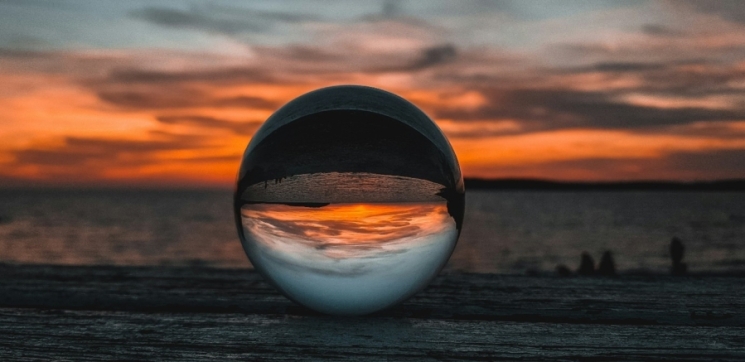“At the beginning we were all created equal. If God willed that there should be serfs, he would have said so at the beginning of the world. We are formed in Christ's likeness, and they treat us like animals.”
John Ball, priest and revolutionary, Peasants' Revolt,
described by Jean Froissart in Chronicles of England, France, Spain c.1395
Stereotypically politics is seen as ‘dirty’ and spirituality as ‘pure’. For some, they seem to inhabit separate worlds. Yet for spirituality to have a tangible impact on our society and politics to be constructive, they both need each other. And they are deeply connected: as the Tibetan spiritual leader T.D. Lakha Lama said, ‘Spirituality is spirit-in-reality’. And politics is woven into the reality of our daily lives.

Spirituality and politics in interaction.
We have choices to make in how we live our lives. How and why we make these choices is profoundly determined by our connection to our spiritual or ‘higher’ selves. The more plugged in we are to our soul, the more we listen to our spiritual guidance, the more enlightened and compassionate we become. And that has consequences not just for us, but those around us and society at large. That’s where politics comes in.
Humanity – and the entire universe – is on a path of evolution, not only in the physical sense that modern science understands but on a spiritual level too. We are heading towards a world that is more loving, understanding, respectful of each other and our environment, living at a higher level of consciousness. So in our souls there is a high ideal which we can work towards.
All this involves change which some will embrace but it is not universally welcome. There are people that are not so in tune with their soul mission: they can be fearful of going into an unknown new world; there are those who seek to hang on to their familiar pursuit of wealth and power, spiritual dead-ends though they ultimately are. This range of feelings can find expression in different political movements.

The spiritual spectrum of politics
There are parties of the future, visionary parties, that look ahead to the world of enlightenment. As we are constantly evolving, we can see them as broad principles rather than specific policies:
By their very nature, these parties articulate the views of a minority, made up of forward-thinking people whose task it is to light the way. Their policies may not always be immediately practical but they give us the direction of travel. In many democracies, this is at least in part represented by the Greens with their concern for the environment and social justice.
Then we have parties that embrace gradual change, seeking to take the majority of the population with them. Broadly these are represented by parties like Labour in the UK, Democrats in the USA, and Social Democrats in many other countries. It is important to understand that though they attract many people, these parties of the Centre-Left on their own can easily lose momentum and even their moral compass, becoming parties that just manage societies rather than lead them anywhere. That is why any political system needs much more radical progressive parties like the Greens to act as a beacon and to encourage them to move forward.
The next large political block is generally represented by Conservative parties. As their name suggests, they seek to conserve what they feel is best in society. They articulate a caution, even anxiety, about change, such as movements towards social reform, equality and internationalism. In this they have an immense innate short-term electoral advantage and equally long-term disadvantage. They appeal to a part of our nature that comes from pre-historic times, the mindset of tribe and territory, of hierarchy and order. Scientists think that modern homo sapiens has been on this planet for up to half a million years, most of it living in this way, so that world view is deeply embedded in us and it has a powerful inbuilt pull. Yet because we are on an irresistible path of evolution, in the end they have to give way and accept at least some change – as the more politically successful Conservative parties do. In that sense, progressive politics always wins in the long term.
Further to the Right, we have reactionary or even fascist parties, who would turn the clock back on human progress, pitting their authoritarianism against liberty, their nationalism against our shared humanity. Their politics operate at the most visceral level, playing on our darkest, most primitive fears. Though they can be very destructive, their triumphs are short-lived because they are trying to resist an evolutionary force that ultimately sweeps all before it.
There isn't a one-size-fits all political party that enshrines all spiritual principles that will work for everyone. People are at different stages of their spiritual evolution and we need to accommodate that in our political system.

What can we do?
Where are we in all this? What can we usefully do to be a constructive force in world in turmoil, where we can feel so helpless? Here are some points to be aware of:
By understanding the relationship between spirituality and politics we can act as a force for good in this world.
By Simenon Honoré
The views expressed in this article are not necessarily those of Spirit of the Rainbow.
To discover more, why not read these books:
Riverlution - Going with the flow of personal & planetary change
We Are One - A Manifesto for Humanity
If you enjoyed this newsletter, share it with a friend.
Not yet signed up? It’s easy, here.
And explore our website: Spirit of the Rainbow.
Popular posts
You might also like
Email Newsletter Our latest articles and offers delivered straight to your inbox.
Our latest articles and offers delivered straight to your inbox.